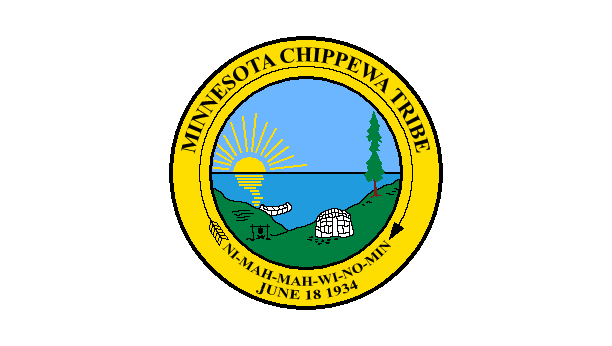The Minnesota Chippewa Tribe has a new leader this year. The Tribe is the centralized governing body for six Anishinaabe member nations: Bois Forte, Fond du Lac, Grand Portage, Leech Lake, Mille Lacs, and White Earth. All across the northern half of the state.
Minnesota Native News correspondent Barbara Jean Meyers called up the new, and very busy, state Ojibwe leader to better understand how her past is informing her vision for Anishinaabe people here today, and into the future.
“I was just talking with one of the staff members here today and we think about our teachings and how that is affecting the decisions we have to make, and oftentimes we’re like, ‘Man, our grandparents would have done this completely different. Are we on the right path?” said Drost.
That’s Beth Drost. The newly hired Executive Director of the Minnesota Chippewa Tribe. For Drost, asking that question is an essential part of her job.
“Because the colonized ways are different than the Indigenous ways, and we’re using a colonized form of government in order to get back to our roots as Indigenous people, and you wouldn’t think that it would work, but we have to make it work. That’s our job, to do this business within the structures that we have. So any time we can listen to an elder,” said Drost, “we’re getting back to who we are, and so if we can bring that into the governing of our lands and our resources and our people, I think that we have progress,” said Drost.
Drost grew up in Grand Portage and is an enrolled member of the Grand Portage Band of Lake Superior Chippewa. Her interest in tribal politics traces back to her childhood and especially to her father, the late Curtis Gagnon. When Drost was a kid, her dad was at the heart of a battle to uphold the Lake Superior Ojibwe’s rights under the Treaty of 1854, the intranational agreement between Minnesota and Wisconsin’s Lake Superior Ojibwe bands with the U.S. government.
“It was a case where he shot a moose and later found that it was off-reservation during a non-hunting season. And so he turned himself in and was cited and then there was a long court battle with that. I remember the American Indian Movement people who would meet with my dad, and just being in that whole circle of people who were in government, but also so deep-rooted in our tribal histories and our traditions. And by being a part of that, I think it just was something that I just always knew was out there and wanted to fight for myself,” she said.
That early exposure to activism and culture helped shape Drost’s path. She served as her high school class president. In college, she studied political science writing papers about her father’s court case and treaty rights. Then – after a stint working with the National Park Service – in 2019 she became the first woman elected chairman of the Grand Portage Anishinaabe. And, before leading the Minnesota Chippewa Tribe, she was executive director of the Cook County/Grand Marais Joint Economic Development Authority.
Drost is also the first woman to head the Minnesota Chippewa Tribe.
“Just being here and knowing that my way as a woman can be accepted and it can be something that we can be successful at. And being allowed to open that door for those coming behind me is really just amazing,” she said.
Script: I asked Drost why she wants to do this kind of work.
“If I were to soul search, I’d say for belonging: to belong, to serve, to be a part of it. For someone who is, you know, I’m not a full-blooded indigenous person, and my children aren’t enrolled. So I just kind of think, well, why I’m I doing this? I guess I have hope that our people will continue to be here. And I guess we all follow the path that we’re supposed to, and I can’t argue with it. I can just follow it and do the work that brings me a feeling that I’m doing something that I can do. I guess that’s one of the ways that I can explain it. It’s just what I want to be doing.” said Drost.
Barbara Jean Meyers reporting for Minnesota Native News
Subscribe to Minnesota Native News in your favorite podcast app
- Indian Child Welfare Law Challenged at MN Supreme Court and Native Nations Impacted by Proposed SAVE ActTRANSCRIPT [sound element: flute music] HOST Marie Rock: This is Minnesota Native News. I’m Marie Rock. This week, the Minnesota Supreme Court heard arguments in a case that could reshape …
- The Sugarbush Tradition Continues in Minnesota’s Urban Areas, and Khayman Goodsky’s New FilmANCHOR Marie Rock: This is Minnesota Native News, I’m Marie Rock. This week, we hear about Minnesotans continuing the old tradition of sugarbush in urban areas. Plus, a look at …


 Alicia Smith’s Gift for Caring
Alicia Smith’s Gift for Caring